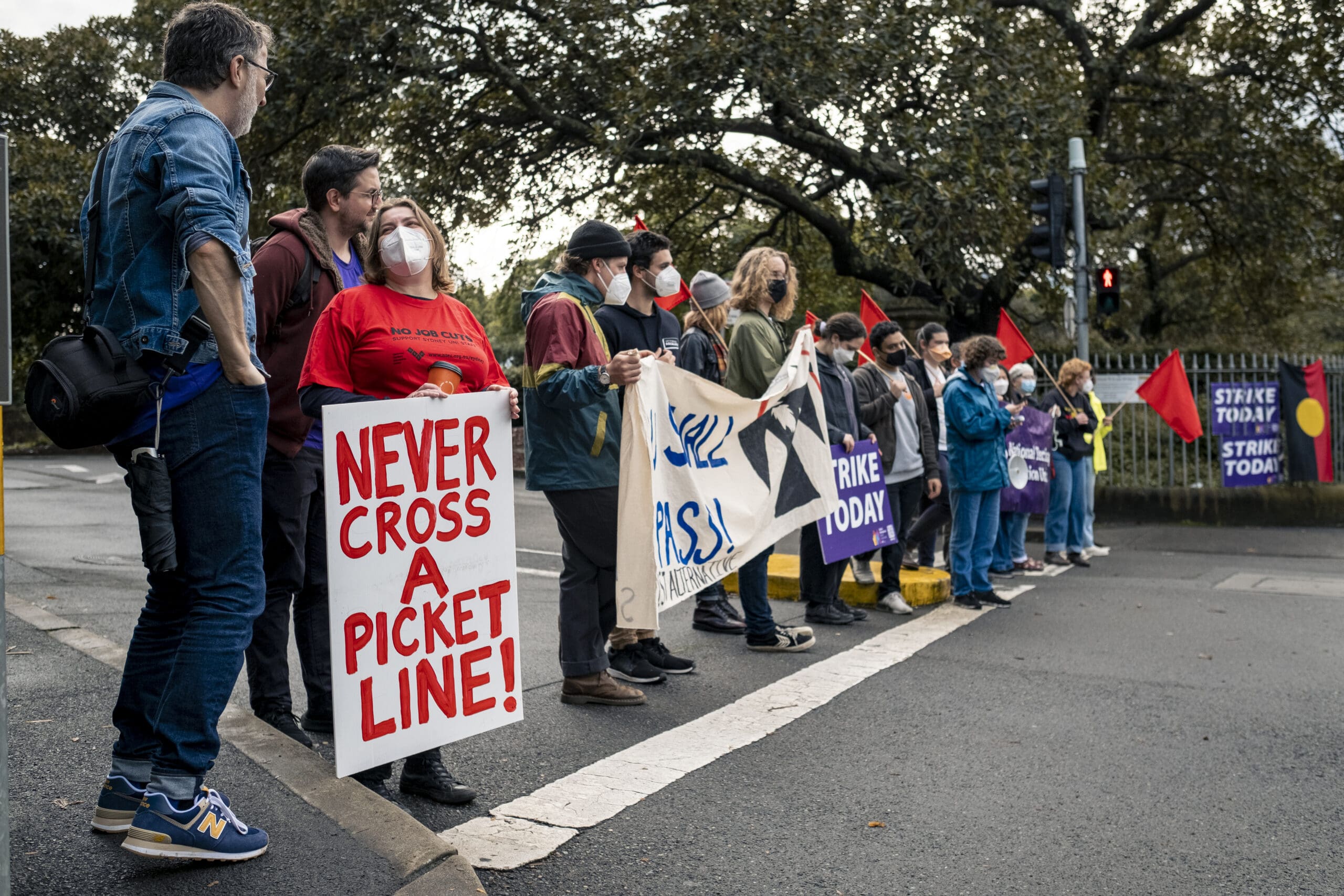
The University of Sydney has experienced several strikes by academic and professional staff over the years.
In late 2021, staff members at the University of Sydney went on strike for two weeks to protest proposed cuts to jobs and wages.
The strike was organized by the National Tertiary Education Union (NTEU), which represents academic and general staff at universities across Australia.
The proposed cuts were part of the University’s response to a budget shortfall caused by the COVID-19 pandemic.
Here is a YouTube Video from some of NETU Member:
The University had proposed to cut 30% of the general staff workforce, which would have affected hundreds of jobs, and to freeze wages for the next two years.
The strike disrupted teaching and research activities at the University and other services such as campus security and cleaning.
Academic staff argued that educational workload change would increase their workload and decrease job security. They also protested a lack of staff consultation on the proposed changes.
Here is the USYD official statement about industrial action on campus:
The strike received much media attention and generated strong reactions from students and staff.
However, negotiations between the two parties have been ongoing for almost 24 months, the longest in the history of USYD and for the NTEU at any campus.
Moreover, the strikes every semester continue to affect the regular teaching order of the school. There have been two strike days in 2023 S1 alone.
On March 9, 2023, University of Sydney employees went on strike for the fifth time in a year. For 24 hours, tutors, lecturers, and professional staff refused to conduct lessons, respond to emails, or do their regular jobs.
The university entrances, where the NTEU had erected picket lines of staff, backed up by students, to enforce the strike.
Another strike followed on April 5, which is the ninth time strike in total.
Members of the National Tertiary Education Union (NTEU) at the University of Sydney Branch have voted to cancel three days of scheduled strike action in Week Ten.
Instead, staff continued negotiations with the university administration towards a final agreement without going on strike.
There are many interviews in the news with NTEU members, USYD staff, and leadership, but only a few with students.
Sophia Siyuan Li, a junior international student at USYD majoring in Economics, shared her perspectives on the strikes.

“I am very supportive of the strike and understand the actions of the staff members, and I have been very supportive since the beginning of 2021.”
She opened the interview with a positive statement of support, followed by the following information:
“But I didn’t expect the strike to last this long; it’s 2023 now, even though the pandemic is over, yet every semester we seem to be still affected by the strike.”
When asked for her thoughts on the strike’s impact, she added:
“The strikes each semester have an impact on my academic progress, although it may not be a huge impact, just a day off from class; the one strike this semester happened on March 31, which is the census date, and I had to make critical class selection decisions ahead of time, which was really anxiety-provoking. ”
When asked for any other comments, she also said:
“It’s good to hear that they have reached some sort of settlement and have called off another strike for week 10, which is worth celebrating, and I think both sides of USYD and NTEU should be calm and take a positive communication attitude to try to solve the problem as soon as possible and reduce the possible conflicts as well as the conflict bar.”
Qing Gu, another interviewee, a sophomore international student from USYD majoring in Finance, shared his thoughts on the incident.
“I am neutral about the strike, but there might be a better way to solve the problem. Although I believe the strike pulling the picket line shifts various costs to the student.”
After asking him to explain this point in detail, he had this to say:
“First of all, a strike restricts educational resources for the students. The fact that school campuses are not accessible, and teachers are not teaching will undoubtedly hurt students, whether minor or serious.”
“So why does a direct dispute between the school and NTEU require students to bear this negative impact?”
When asked about the personal impact the strike has had on him, he said:
“Let me be obvious; I think the twelve-week per semester teaching regime should be strictly adhered to and not be affected by factors like the strike; some teachers will conduct online classes on strike days, and some will not, which is no doubt a loss.”
“The central conflict between them is the issue of pay and treatment, but in reality, the school is increasing tuition by a certain amount every semester.
“The student is spending more on tuition but receiving a relatively lower quality of instruction, which is unfair to us.”
The above interviews with the two students at USYD schools may provide a different perspective on the strike.
We need to raise awareness of the student’s perceptions in the strike dilemma. After all, students, as potential third parties in the event. The wishes of each group need to communicate fairly and equitably.
Please share your opinion or idea on social media platforms or comment section. Thank you so much for reading.

Be the first to comment